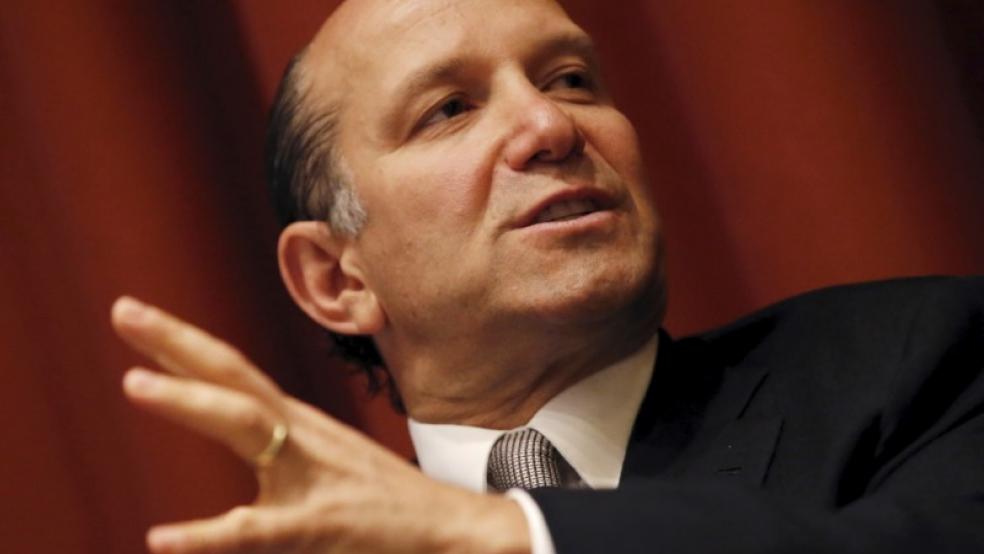(Reuters) - Former Wells Fargo chairman and chief executive Richard Kovacevich said that Bank of America shareholders are wrong to try to strip Bank of America CEO Brian Moynihan of his chairman title.
Bank of America's shareholders vote next week on whether CEO Moynihan should remain the bank's chairman. But investors often do not know what is best for a company, because they have worse information than managers, Kovacevich told Reuters in a phone interview."I've probably done more things against the wishes of stockholders than anyone in the history of banking. Ask anyone who’s ever held our stock who was right," he said. Kovacevich is no stranger to this issue. He was chairman and chief executive of Wells Fargo from April 2001 through June 2007, and faced ballot measures at the bank's annual meeting that sought to strip him of his chairman title from 2005 through 2007. Kovacevich said he typically won somewhere around 70 percent of the votes when ballot measures sought to remove his chairman title. He held chairman and CEO spots separately during his time at the bank as well. Bank of America aroused the ire of some investors last year when it named Chief Executive Brian Moynihan as its chairman, undoing a 2009 investor vote to separate the jobs. The vote next week came in response to shareholder complaints. To Kovacevich, the 2009 shareholder vote at Bank of America to separate the chairman and CEO spots is not important anymore. "What somebody thought then is totally irrelevant," he said.Bank of America declined comment.The Bank of America vote is expected to be close. Large investors including pension funds in California and New York City have said they will vote to separate the two roles.Kovacevich said that the 30 percent of votes that he did not win were typically from shareholders that took their cues from proxy advisory firms, including Institutional Shareholder Services and Glass Lewis.Among those votes were exchange-traded funds and other passive investors that essentially outsource decision making on these matters to proxy advisors."ETFs don't want to spend the money," Kovacevich said. "But saving money shouldn't dictate how people vote. It's undemocratic."J.P. Morgan CEO and Chairman Jamie Dimon in May made similar comments, calling investors who vote based on ISS or Glass Lewis "irresponsible" and "lazy." (Reporting by Dan Freed, Editing by Dan Wilchins; Editing by Alden Bentley)Ex-Wells CEO says Bank of America investors should back off

Rick Wilking



